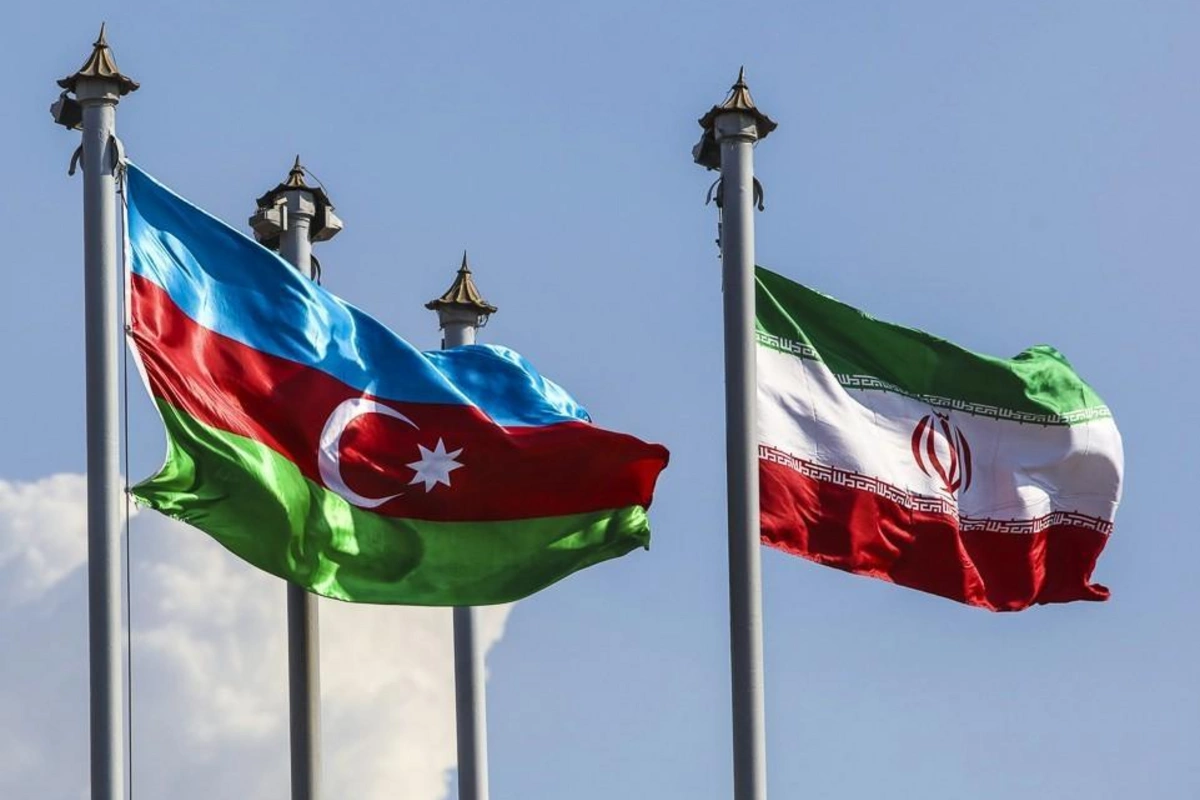
Following Iranian President Masoud Pezeshkian's recent visit to Azerbaijan, relations between Baku and Tehran have entered a promising new phase. The two countries, long linked by deep-rooted historical ties, are now focused on advancing their economic partnership, boosting regional security, and developing key infrastructure projects that enhance strategic connectivity. This shift in bilateral relations signals a renewed commitment to strengthening ties in areas such as trade, transport, and energy, all while working together to address regional challenges. With both nations emphasizing cooperation, there are growing opportunities for mutual investments and collaborative ventures that could benefit both sides and contribute to the stability and prosperity of the broader region.
Photo credit: Source: Irna | Dr. Afshar Soleymani, the former Iranian ambassador to Azerbaijan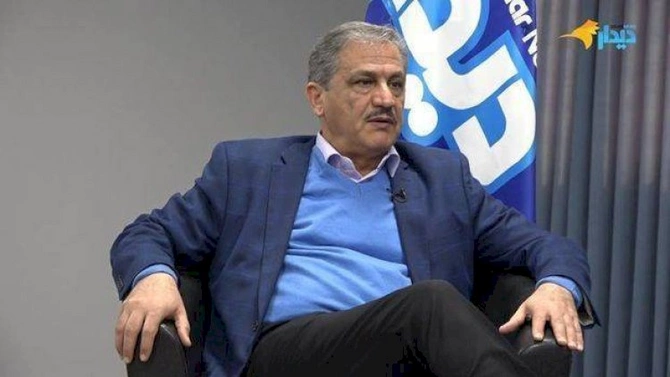
In this context, News.Az interviewed Dr. Afshar Soleymani, the former Iranian ambassador to Azerbaijan and a renowned political analyst, to explore the fresh opportunities for bilateral cooperation, the significance of transportation corridors, and the potential for joint investments.
- What new areas of cooperation have opened up after the signing of agreements between Azerbaijan and Iran?
- Agreements have been signed between Azerbaijan and Iran before, and this time certain documents have also been agreed upon. One of the most important aspects of these documents is the issue of electricity. Additionally, the North-South transport corridor has also been discussed. Documents related to cultural, political, and economic cooperation have been signed. At the same time, the development of railway infrastructure has also been on the agenda, especially with certain projects planned for Iran’s Mughan region.
In the past, there were also negotiations in this direction. Now, there is an opportunity for these issues to move to a more concrete and practical phase. For instance, projects such as the transit of Russian gas through Azerbaijan to Iran may come to the fore. Energy and transportation are key priorities of this cooperation. On a global scale, these issues also hold strategic significance. Azerbaijan and Iran could become more closely connected through both energy and transport.
This cooperation is important both geopolitically and geo-economically. Geopolitical proximity can lead to geo-economic integration, which, in turn, can contribute to income, employment, and economic growth. It would also have a positive impact on the welfare and social conditions of the population. The exchange of mutual experience between the two countries will add additional value to this process.
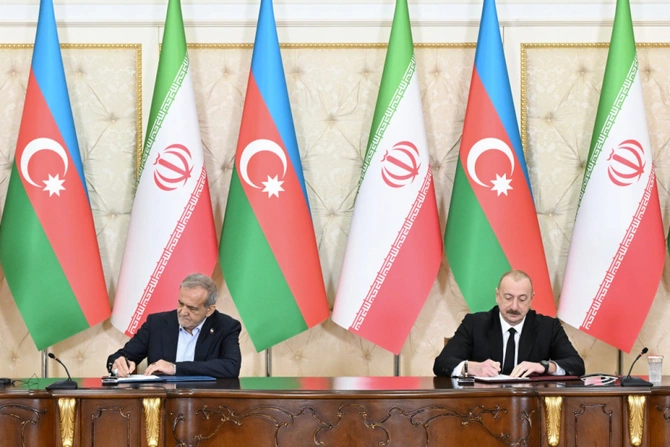
Photo credit: AzerTAG
This cooperation can also contribute to peace, stability, and security in the region. Regional cooperation formats - such as the triangle of Azerbaijan, Iran, and Russia - are very important. Of course, some projects can be realized quickly, while others require time. But the key point is that a foundation already exists, and these opportunities can be realized.
It is not enough to sign documents just during the presidential visit. Additionally, working groups need to be created, contracts signed, and concrete steps must be taken. For example, there has been electricity and gas exchange between Azerbaijan and Iran in the past. Iran has purchased electricity from Astara, and Azerbaijan has provided gas. Now, gas transportation from Turkey to Nakhchivan is beginning. Whether this will create an additional need for Iran will become clear over time.
The main point is that this visit creates an opportunity for the negotiations to move to a practical stage. I truly consider this visit to be the beginning of a turning point. If the existing foundation is maintained, issues are resolved, and mutual trust is strengthened, cooperation can be further expanded.
- How do Azerbaijan and Iran contribute to strengthening regional security and stability by supporting the sovereignty and territorial integrity of regional states?
- Naturally, countries should support each other's territorial integrity and national sovereignty. This is one of the core principles of the United Nations. That is, no state should aggress against the territory of another country and must respect its sovereignty. In this regard, Iran should support Azerbaijan’s territorial integrity and national sovereignty.
If we look at the global processes, we can see that some states do not adhere to these principles. For example, Russia has occupied Ukrainian territory and claims certain regions - Crimea, Donetsk, and Luhansk. This clearly violates Ukraine's territorial integrity. Azerbaijan’s support for Ukraine in this matter is the correct position and is in line with international law.
The same approach should be taken between Azerbaijan and Iran. Both countries must recognize each other's territorial integrity and adhere to the principles of mutual respect. Such approaches would reduce tensions, weaken conflicts, and promote peace.
We have seen the consequences of territorial disputes in various parts of the world - such as in the Pakistan-India conflict, the Russia-Georgia conflict (regarding Abkhazia and South Ossetia), and during the Iran-Iraq war.
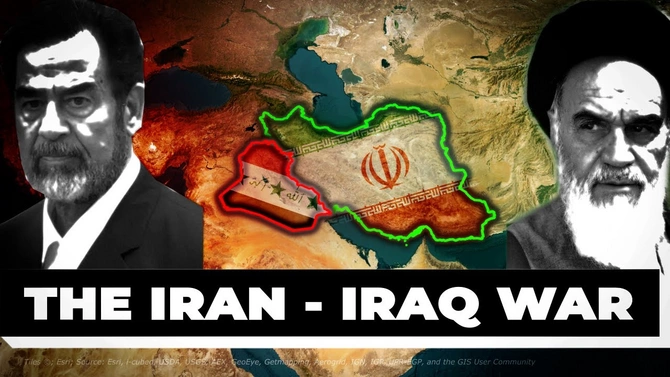
Photo credit: IRNA
Currently, there are significant advancements in Azerbaijan-Armenia relations. Ninety percent of the agreement has already been reached, and work is being done on a new agreement. However, some issues remain. For example, territorial claims related to Karabakh are present in the Armenian Constitution and certain official documents. This creates an obstacle to stability in the region. Additionally, problems in Armenia-Turkey relations and closed borders stem from these conflicts.
If these issues are resolved peacefully, and if all countries recognize each other's territorial integrity, it will create a favorable ground not only for security but also for the development of economic and cultural cooperation. The free movement of people, the development of tourism, and mutual cultural exchanges will become easier.
If the main goal of states is to serve their peoples, then resolving these conflicts, strengthening cooperation, and establishing mutual trust is essential. Such an approach would increase the welfare of the people and strengthen friendship and mutual understanding in the region.
- What is the significance of the North-South and East-West transport corridor projects for strengthening economic relations between Azerbaijan and Iran, and for the region as a whole?
- The North-South and East-West transport corridors are particularly important for Iran. Unfortunately, the railway between Astara and Rasht in Iran is still not completed. This issue has been delayed for years and is still under discussion. Russia is hindering this project for its own interests, and it is said that this matter will be more difficult for a long time. This has complicated the joint efforts of Iran and Azerbaijan in this area and increased costs. Time is already being lost.
Currently, Azerbaijan has built a railway between Astara and Iran, and a port has been created there. Goods are transported and unloaded at this port. However, the construction of the 160 km stretch of road is still incomplete. Some reports suggest that construction will begin this spring, but the issue remains unresolved.
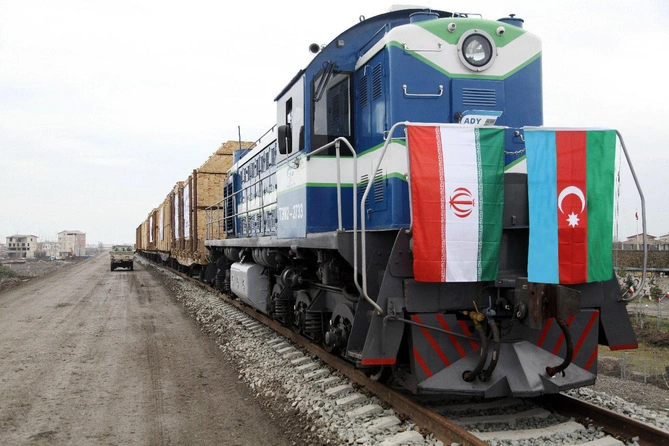
Photo credit: Caspian news
The main issue is the development of transit routes. This is of great importance because this route stretches from North to South and from East to West. For example, routes extending to Russia, Ukraine, Poland, and Eastern Europe play a significant role here. The development of this transport route can also be facilitated through the Black Sea.
The Iranian side, despite the problems related to sanctions, should be more serious about developing these projects. These transit routes passing through Iran will positively impact both Iran's economy and the economies of other countries. This project will facilitate transportation and expand trade relations.
Currently, the North-South corridor is not being fully utilized because the project is not entirely ready. However, the potential of this route is huge. I have previously participated in meetings discussing these matters, and I believe that the development of this route could be realized within at least a month. The full implementation of this project will be highly beneficial for the economy and trade.
The development of such transport infrastructure - the combination of railways, highways, maritime, and air routes - will create an environment for closer cooperation and mutually beneficial relations between countries. This, in turn, will bring economic benefits to the people and countries. However, this requires serious effort, investment, and problem-solving. These projects must begin and be implemented now.
- What are the prospects for joint investments and the creation of joint ventures between Azerbaijan and Iran?
- Although some joint work and capital investments have been made between Iran and Azerbaijan, it has not yet developed to the desired level. In my opinion, in accordance with the requirements of the new era, the states should support the private sector. Connections between private sectors should be established, contracts should be signed, and joint projects should be implemented.
For example, the State Oil Company of Azerbaijan (SOCAR) has participated in various projects in Georgia and Turkey, invested, and is active in those countries. A similar approach would be very beneficial for Iran. Iran has huge potential, and joint work can be done there.
Photo credit: Caucasus Watch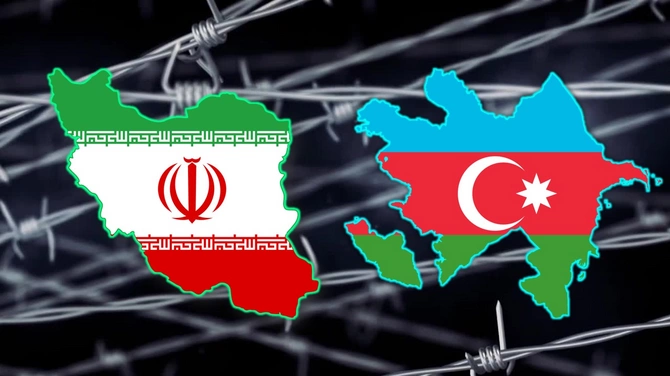
However, the sanctions Iran currently faces complicate these processes. God willing, if the sanctions are eased as a result of these negotiations, more opportunities will arise. This, in turn, will open new avenues in trade and investment.
Iran's progress in the petrochemical and energy sectors is very significant. More projects can be implemented in these areas in Azerbaijan as well. The involvement of the private sector in agriculture and other sectors is also very important. States should support these sectors and create opportunities for them. Thus, numerous opportunities for cooperation between Azerbaijan and Iran would emerge.
Azerbaijan and Iran are neighboring countries, so it is possible to carry out joint work and strengthen relations further. Cooperation in the energy and transportation sectors is particularly important, and both countries can work together by reaching agreements in these areas.
- What steps are being taken to increase trade turnover and deepen economic relations between the two countries?
- The trade relations between Iran and Azerbaijan currently stand at around 500-600 million dollars. This is the amount that Iran exports to Azerbaijan, but Azerbaijan's exports to Iran are still very low, around 100 million dollars. However, we have the potential to increase this figure two or three times, but serious work has not been done yet. To increase the trade volume, it is necessary to simplify customs and trade procedures, ease regulations, and create favorable conditions for the trade environment. I believe that it is possible for trade relations between Iran and Azerbaijan to reach at least one billion dollars. In one or two years, these trade relations could develop and gradually increase further.
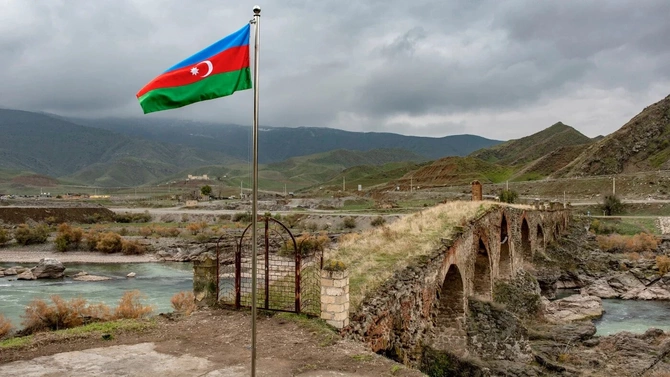
Photo credit: Middle East Eye
Unfortunately, due to various reasons, this has not yet been realized. However, in the future, God willing, if the conditions are created and some obstacles are removed, trade relations could further develop. I believe there are opportunities, and if the right conditions are created, this is possible.
Azerbaijan and Iran share a long border, so it is possible to establish border trade and joint markets, as well as to implement joint investments. However, unfortunately, there are difficulties in terms of negotiations and the implementation of decisions. For example, responsible officials often use phrases like "we made such a decision" or "we agreed on this," but in practice, it is still difficult to achieve these results.
God willing, through professional visits, diplomatic negotiations, and mutual will, these problems will be solved, and trade relations will further develop. Persistence and determination are crucial in this regard. In the future, we will need to make real efforts to overcome the obstacles we face and move forward.
Share on social media